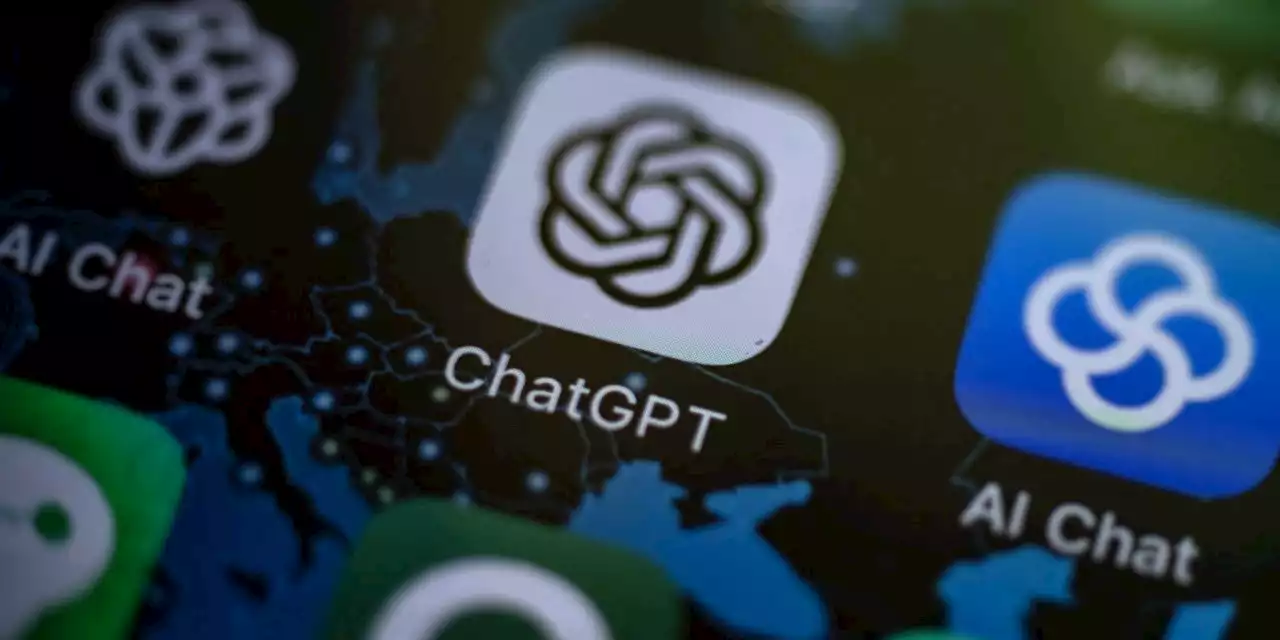Accuracy of health information, privacy and equity are among executives’ key concerns as health AI rapidly evolves.
As artificial-intelligence tools show promise in transforming healthcare, technology companies, healthcare providers, drugmakers and other players are also focused on its potentially damaging side effects.
“ChatGPT is pretty exciting, but it writes things definitively, and as human beings we’re used to taking definitive statements very seriously,” Cris Ross, chief information officer at the Mayo Clinic, said during an AI-focused panel at the conference, which was organized by Politico. “A lot of the responses from these tools still require human introspection, inspection, evaluation and so on,” he said.
AI advancements have raised a host of questions about ethics and equity in healthcare. Large language models such as ChatGPT, for example, are fed data from books, articles and other sources that may lack diversity and representation in their authorship and subject matter and may only exacerbate existing societal biases, researchers from Indiana University and the University of Houston wrote in a recent report in the journal Health Affairs.
The accuracy of information coming from generative AI is also critical in healthcare, executives said. While generative AI is incredible, “there are also a lot of limitations,” said Palantir’s Jain. “Doing computation and generating something that is factually true is really hard when the generative component is there.”
United States Latest News, United States Headlines
Similar News:You can also read news stories similar to this one that we have collected from other news sources.
 New Tool Can Tell If Something Is AI-Written With 99% AccuracyMany students have admitted to using software like ChatGPT to help with assignments, leading many school districts to place bans on the chatbot.
New Tool Can Tell If Something Is AI-Written With 99% AccuracyMany students have admitted to using software like ChatGPT to help with assignments, leading many school districts to place bans on the chatbot.
Read more »
 New Tool Can Tell If Something Is AI-Written With 99% AccuracyA new study found an AI detector developed by the University of Kansas can detect AI-generated content in academic papers with a 99% accuracy rate
New Tool Can Tell If Something Is AI-Written With 99% AccuracyA new study found an AI detector developed by the University of Kansas can detect AI-generated content in academic papers with a 99% accuracy rate
Read more »
 AI Efforts Make Strides in Predicting Progression to RATwo independent efforts to use artificial intelligence to predict the development of early RA from patients with signs and symptoms not meeting full disease criteria showed good accuracy.
AI Efforts Make Strides in Predicting Progression to RATwo independent efforts to use artificial intelligence to predict the development of early RA from patients with signs and symptoms not meeting full disease criteria showed good accuracy.
Read more »
 HeartBEiT: Mount Sinai’s AI Innovation Decoding Electrocardiograms As LanguageMount Sinai's AI model, HeartBEiT, improves the accuracy and detail of ECG diagnoses, even for rare conditions with limited data. It interprets ECGs as language and outperforms traditional CNNs, highlighting specific ECG areas responsible for heart conditions. Mount Sinai researchers have develop
HeartBEiT: Mount Sinai’s AI Innovation Decoding Electrocardiograms As LanguageMount Sinai's AI model, HeartBEiT, improves the accuracy and detail of ECG diagnoses, even for rare conditions with limited data. It interprets ECGs as language and outperforms traditional CNNs, highlighting specific ECG areas responsible for heart conditions. Mount Sinai researchers have develop
Read more »
 The Senate Is Getting a Crash Course on How to Regulate AI—From the AI IndustrySenate Majority Leader Chuck Schumer on Tuesday announced a series of bipartisan hearings on artificial intelligence to “keep abreast of the extraordinary potential, and risks” of the technology.
The Senate Is Getting a Crash Course on How to Regulate AI—From the AI IndustrySenate Majority Leader Chuck Schumer on Tuesday announced a series of bipartisan hearings on artificial intelligence to “keep abreast of the extraordinary potential, and risks” of the technology.
Read more »
‘Incompetent’ driverless cars are wreaking havoc on San FranciscoAs Cruise and Waymo wrestle for dominance, local transportation agencies worry the technology is still not ready to take over the city’s roadways.
Read more »
